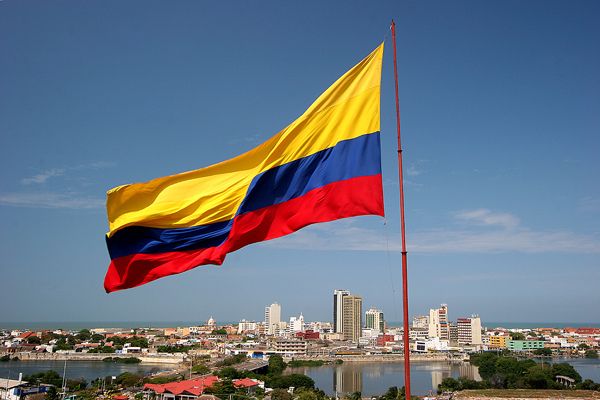
Coinposters
Colombia Government Launches National Land Registry on XRP Ledger

According to recent reports, the Colombia government is poised to take use of XRP blockchain technology. More than 50 million Colombian citizens will soon be able to access the first National Land Registry on the XRP Ledger (XRPL), a software and blockchain development startup that is Ripple’s longtime partner.
For the last year, Barcelona-based business has been working with Colombia’s “Digital Government” program and Ministry of Information Technology and Communication on the project, which has resulted in the creation of Colombia’s first “digital government.”
By employing XRP Stamp, the country’s National Land Agency will be able to verify and certify digital files and records on XRP Ledger, which is a blockchain-based initiative (XRPL). The data is subsequently added to the blockchain and preserved there permanently. QR codes are used to verify the authenticity of a product.
Colombia’s government agency, the Colombian Ministry of Information Technology and Communication, has been praised by Peersyst Technology for its willingness to allow blockchain technology to enter the country and for its interest in transparency.
Most of Peersyst’s blockchain-based initiatives are built on the XRP blockchain, which has a long-standing cooperation with Ripple. It’s as if the two organizations are twins, united in their pursuit of the same blockchain objectives.
When it comes to Bitcoin and cryptocurrency rules in Colombia, the Latin American nation is behind the curve. Colombia, in contrast to other countries like Argentina, Brazil, and El Salvador, has just recently enacted a statute governing cryptocurrency exchanges that have established regulatory principles and created a flourishing climate for digital assets.
In order to safeguard residents from the hazards of cryptocurrency-based Ponzi schemes, a measure enacted by Colombia’s Congress early last month clarified the country’s cryptocurrency exchange operating model for the first time. Before becoming law, the measure must still go through three more hearings and debates before being finalized.
The absence of effective regulation hasn’t put a damper on Colombians’ interest in or ownership of cryptocurrency. Six percent of Colombians will hold cryptocurrency in 2021, according to Triple-A, while eighty percent of Colombians expressed interest in it throughout the study.
Latest
Altcoins
21 Feb 2026
Altcoins
13 Feb 2026
Altcoins
07 Feb 2026
Altcoins
06 Feb 2026
Altcoins
05 Feb 2026
Altcoins
03 Feb 2026












